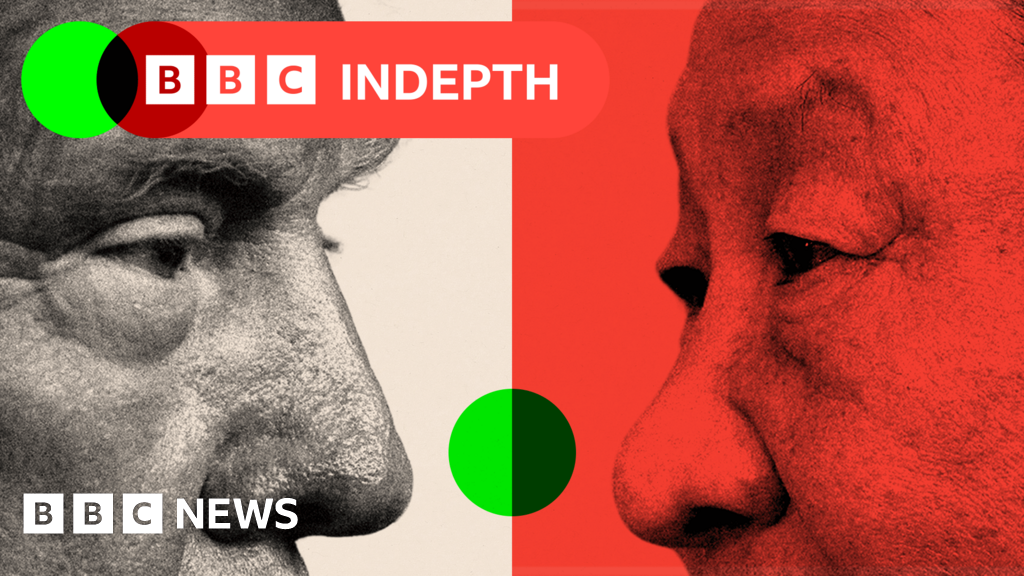ARTICLE AD BOX
By Nomia Iqbal in Erie, Pennsylvania & Paulin Kola in London
BBC News
Watch: Video shows the moments after author Salman Rushdie was attacked
Salman Rushdie said he felt his life was "relatively normal" in an interview conducted just two weeks before he was stabbed on stage in the US.
The award-winning writer is in a critical condition after being attacked at an event on Friday.
He has faced years of death threats for his novel The Satanic Verses, which some Muslims see as blasphemous.
Mr Rushdie, 75, has been put on a ventilator, is unable to speak, and may lose one eye, his agent said.
Stern magazine had planned to publish its interview with the author next week, but brought it forward after the stabbing attack.
Police detained a suspect named as Hadi Matar, 24, from Fairview, New Jersey, shortly after he ran onto the stage and attacked Mr Rushdie and an interviewer at the Chautauqua Institution in western New York state.
Mr Rushdie was stabbed at least once in the neck and in the abdomen, authorities said. He has sustained liver damage, too.
Police told a news conference that staff and audience members had pinned the attacker to the ground where he was arrested.
The interviewer who was with Mr Rushdie, Henry Reese, suffered a minor head injury and was taken to a local hospital. Mr Reese is the co-founder of a non-profit organisation that provides sanctuary to writers exiled under threat of persecution.
No motive or charges have yet been confirmed by police, who have said they want to examine a backpack and electronic devices found at the centre.
Two security officials were on duty at the centre - one making the subsequent arrest.
However, some of the visitors have questioned why security was not tighter for a man with a bounty of more than $3m on his head (£2.5m).
Members of the audience said the venue lacked basic security measures like bag checks and metal detectors.
Like other people planning to attend the author's lecture, Mr Matar had obtained a pass to enter the Chautauqua Institution grounds, the group's president said.
Fatwa never rescinded
Indian-born novelist Mr Rushdie shot to fame with Midnight's Children in 1981, which went on to sell over one million copies in the UK alone.
But his fourth book, published in 1988 - The Satanic Verses - forced him into hiding for nearly 10 years.
The surrealist, post-modern novel sparked outrage among some Muslims, who considered its content to be blasphemous - insulting to a religion or god - and was banned in some countries.
A year after the book's release, Iran's Supreme Leader Ayatollah Khomeini called for Mr Rushdie's execution. He offered a $3m (£2.5m) reward in a fatwa - a legal decree issued by an Islamic religious leader.
The bounty over Mr Rushdie's head remains active, and although Iran's government has distanced itself from Khomeini's decree, a quasi-official Iranian religious foundation added a further $500,000 to the reward in 2012.
There has been no reaction from the Iranian government to Mr Rushdie's stabbing. Iranian media described Mr Rushdie as an apostate - someone who has abandoned or denied his faith - in their coverage.
Mr Rushdie British-American citizen has become a vocal advocate for freedom of expression, defending his work on several occasions. He has also continued to write, with his next work due out in 2023.

 2 years ago
12
2 years ago
12








 English (US)
English (US)